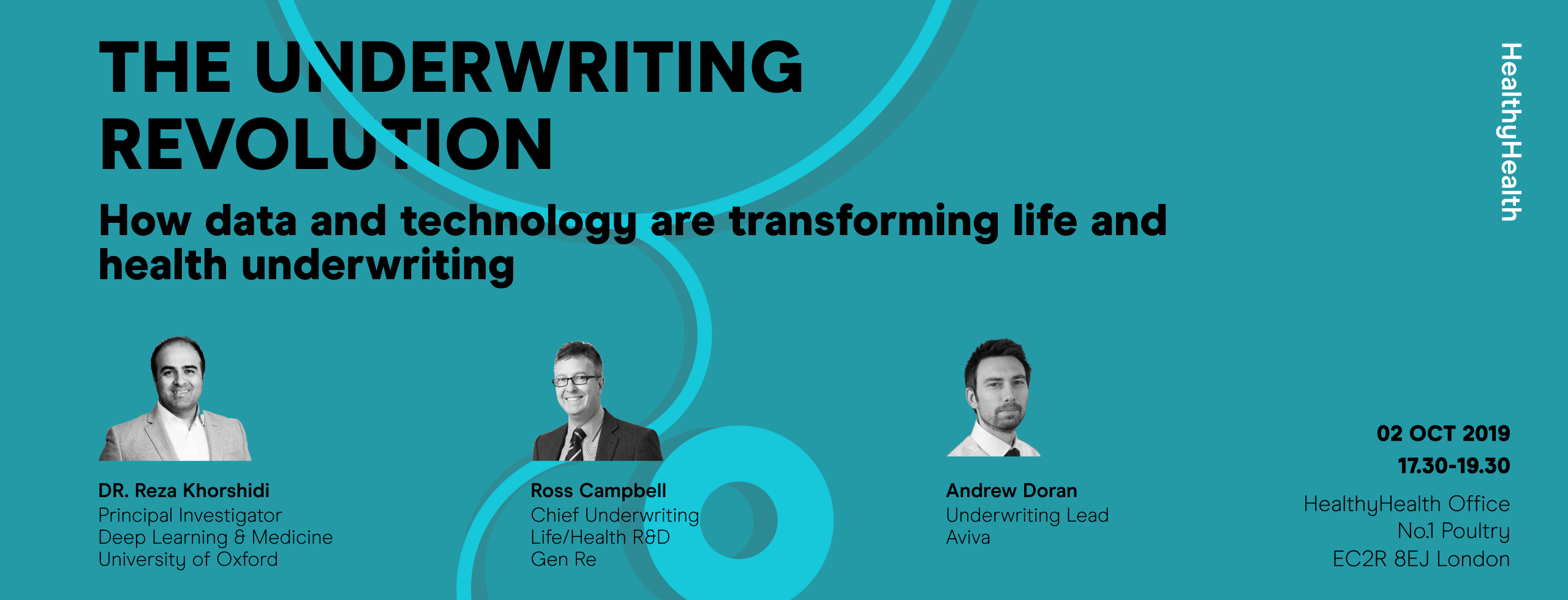Lifetime engagement with life and health customers may increase the focus on prevention and improve

In a recent Qumata panel discussion, Ross Campbell, chief underwriter and lead for digital engagement at Gen Re acknowledged the pressure placed on the traditional snapshot underwriting process for long-term Life and Health policies, that are by nature designed to last a lifetime.
“If your health improves there’s no way to take that into consideration. Digital technology may allow a different approach between policy issue and claim,” Campbell said.
He noted the potential for pricing shifts or changes to the scope of coverage that can be offered between inception and a decade later, particularly within a continually shifting field of study such as medicine.
Andrew Doran, Aviva’s underwriting strategy lead, speaking as part of the panel discussion suggested technology could help reduce the subjectivity of medical opinion.
“Currently, we have one chance to get our underwriting assessment right for a policy that can be in place for up to 50 years,” he said. “A specialist may give their view of someone’s health but there are few medical studies that span 50 years, which can lead to a mismatch between medical opinion and the insurers, longer term, view of the risk.”
Campbell suggested insurers needed to get in step with customers, who are increasingly proactive about their health.
“Digital solutions are being prescribed by the NHS, using wallets of information about people’s health. There’s a paradigm change in the digital health revolution, and shouldn’t insurers get in step with that?” he asked.
Doran agreed wholeheartedly. “If that’s not where the insurance is within five years then we’re missing a massive trick,” he said.
Insurers need to sculpt tools for interacting with customers with a mix of relevance and convenience to provide something short of diagnostic but as an early predictor of likely changes in health, he suggested.
He added that preventative analytics for such tools are still in their infancy. “A step-change comes when we can introduce great preventative technology into the customer ecosystem,” he added.
Incentives for healthier habits will need to be part of such a step-change, although Campbell noted this is not new, citing Vitality, but that trust is core to working closely with incentives based on customers’ data.
Also speaking on the panel was Etienne Bourdon, co-founder and chief operating officer for Qumata, he believes that "Insurance ought to be better recognised as a social good for sharing the cost of pain.”
“We have to build trust by being transparent and maybe also by providing additional services. If we can get data collection right then we can probably change the underwriting paradigm,” he continued.
"That’s the prize that Qumata is trying to reach,” Bourdon added.
Closing the gap
AI’s increasing ability to analyse and detect patterns within vast amounts of data mean enormous opportunities within the field of medicine, was emphasised by Reza Khorshidi, principal investigator for deep learning and medicine for the University of Oxford in his presentation.
It provides the ability to massively boost the abilities of all the best doctors, who can only ever see so many patients and symptoms and amass so much experience within a lifetime of work.
“Advanced deep learning works in medicine; we can predict 300 diseases with a single model,” Khorshidi said.
Patents in AI are growing exponentially each year, he stressed, adding that for insurers the benefits should be obvious.
“There’s still a $3.5trn health protection gap outside the EU and US. Nobody has ownership of that risk,” said Khorshidi. “The question is: 'Who will respond to these problems sooner and better?’”



